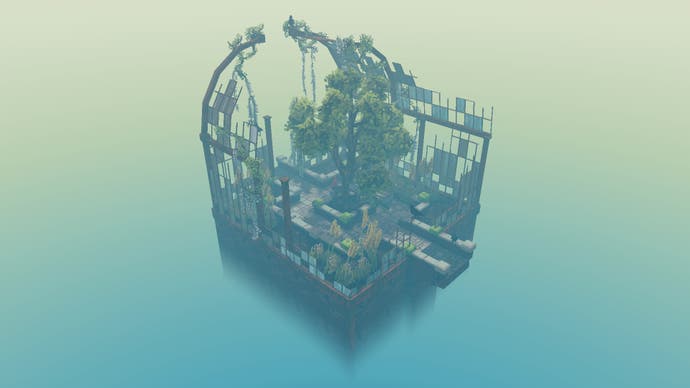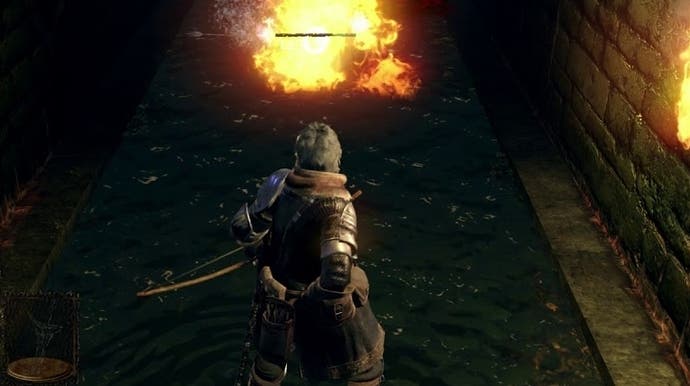Someone should make a game about: fatbergs
Creative blockage.
Be warned: this is a piece about fatbergs, which are really, really disgusting.
Somewhere nearby, underground, growing in the dark, there may lurk a fatberg. The fatberg is here. It has arrived. We have reached fatberg. We have achieved fatberg. We achieved it a while back in fact. The fatberg has been deployed. We are all fatbergers now.
Mmm. Fatburgers. The appeal of the fatberg, I think - the very early appeal - is that it is a word that lies across a strange linguistic divide. Do fatbergs have feet? Grant them feet for a second, at least. One of the fatberg's feet rests in the world of all things disgusting. But listen to it. Hear its whisper: fatberg! One of the fatberg's feet brushes up against something that sounds delicious. Who knew that this liminal world existed, that these two kingdoms, disgusting and delicious, had a shared party wall?
All this until you see the fatberg, of course, at which point its waveform collapses and lo, the fatberg is purely disgusting. In the sewer, it squeezes down out of the roof, brickwork giving way to livid white and purple. It is a tumour erupting into the world of Dark Souls. What would it feel like to touch? Not sponge, but some kind of tissue. The fatberg would feel like marrow, like brain.
Anyway, the first fatberg I saw was blocking a sewer in East London. Thames Water were looking into it. The BBC had the scoop - not that the words 'scoop' and 'fatberg' should ever collide. The fatberg was vast, 250 metres long, 130 tonnes. Matt Rimmer of Thames Water called it "a total monster." He said it would take three weeks to remove.

And let us pause here and reflect. Not on the reality of the fatberg, which is apparently oil and baby wipes and condoms and I'm sorry I even told you that. But on the unreality of the fatberg, because it does seem like unreality. A tumour in Lordran. A total monster. The fatberg belongs in games.
I was thinking of all this recently after I read this really brilliant piece by Ewan Wilson about Cloud Gardens, a new game that encourages you to tinker with plants in a series of liminal edgelands. Ewan makes an excellent point that I had never really thought about before. He talks about how our idea of nature is often an idea of something that has secretly been sculpted and carefully presented. Now the Anthropocene is here we are having to confront the reality of sculpted nature colliding with the sculpted human environment in ways that people often don't really like.
Again, thinking of things that belong in games - and things that feel like unreality - let's think about the Anthropocene. This is our current geological age, I gather - or a proposed epoch, anyway - the Holocene having ticked over into a period in which humans are a dominant force shaping the environment and landscape. The Anthropocene is very tangible: concrete, landfill, extinctions. But it is also hard to think about because shame comes in to cloud things. The Anthropocene grows in part because it is so hard to look at directly. It must be ignored, or disputed.
Maybe, as Ewan suggests, games can help. And maybe it's simpler and darker than that. Maybe the Anthropocene can help games. You see it here and there - Destiny with its rubble and rebar poking out of the scarred wilds, that's the Anthropocene - but there's surely more it can do for the sometimes calcified imagination of games. It can give us jarring specifics that make games fresh again. Sod off orcs and elves and towering mechs. Make way for the fatberg.
Make way for the fatberg! Make way too for Dumpster Honey, as coined I think, although I may be wrong, in the poem by Davis McCombs: "Nontoxic food pigment leaked/from a bloated dip packet where the bees/were buzzing and collecting..."
The Anthropocene is going to give us dumpster honey and fatbergs. It's going to give us monsters. These monsters are ours, in fact. We are making them. So we might as well claim them, artistically, in all their great imaginative potency.

